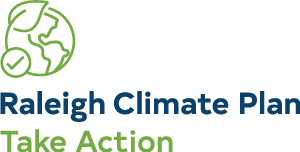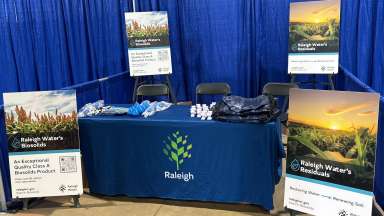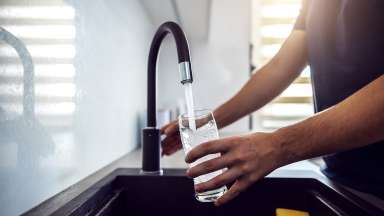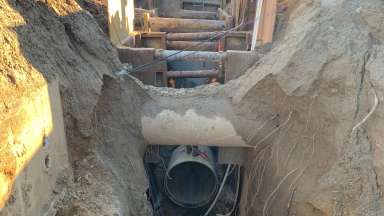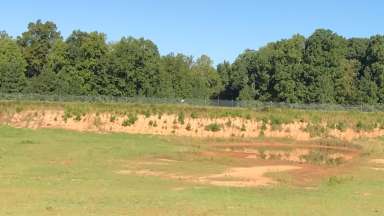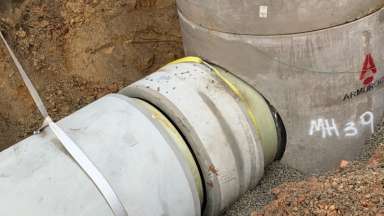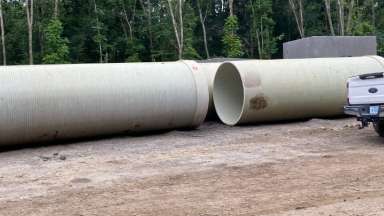This new system produces green energy through the production of biogas and uses an advanced anaerobic digestion process to treat the biosolids, wastewater byproducts, which reduces the overall biosolids amount by around 50 percent when compared to the pervious system. The new system features an innovative process called a “thermal hydrolysis process," which acts as a pressure cooker to help to improve the anaerobic digester performance. This results in production of more biogas and reduces the amount of biosolids produced.
Additional Benefits: This project is generating a renewable fuel that will be used primarily to fuel the City's GoRaleigh bus fleet.
Besides the decreased biosolids amount, the project also creates biogas which is captured and converted to a renewable natural gas and delivered to a nearby natural gas pipeline. This renewable natural gas primarily is used as fuel for the City’s Go Raleigh bus fleet or it can be sold to a third party as revenue. The biogas is projected to produce enough fuel to run more than 70 City buses per day. Ultimately, the new project will produce green energy, allowing the City to make great strides in moving towards reducing its greenhouse gas emissions and meeting its sustainability goals.
This project is the first municipal wastewater digester that produces renewable natural gas in North Carolina. The City of Raleigh is one of just a few municipal agencies in the United States that is using their Renewable Natural Gas to run their own fleet.
Bioenergy Recovery Project
The Bioenergy Recovery Project is a new way to manage wastewater byproducts at the Neuse River Resource Recovery Facility, which is the City of Raleigh's main wastewater treatment plant. Historically, the wastewater byproducts, called biosolids, are highly treated at the Neuse River Resource Recovery Facility and applied to surrounding agriculture fields or taken offsite by a contractor. However, because the existing biosolids handling equipment was in need of replacement and the overall biosolids amount will increase with future growth, a new treatment system was needed.
The new process produces a high-quality final solids product that meets the Environmental Protection Agency's strictest standards, know as Class A biosolids, that are beneficially reused as a soil conditioner.
The project began in spring 2019 and was completed in summer 2025, culminating in a ribbon-cutting ceremony in fall 2025.
